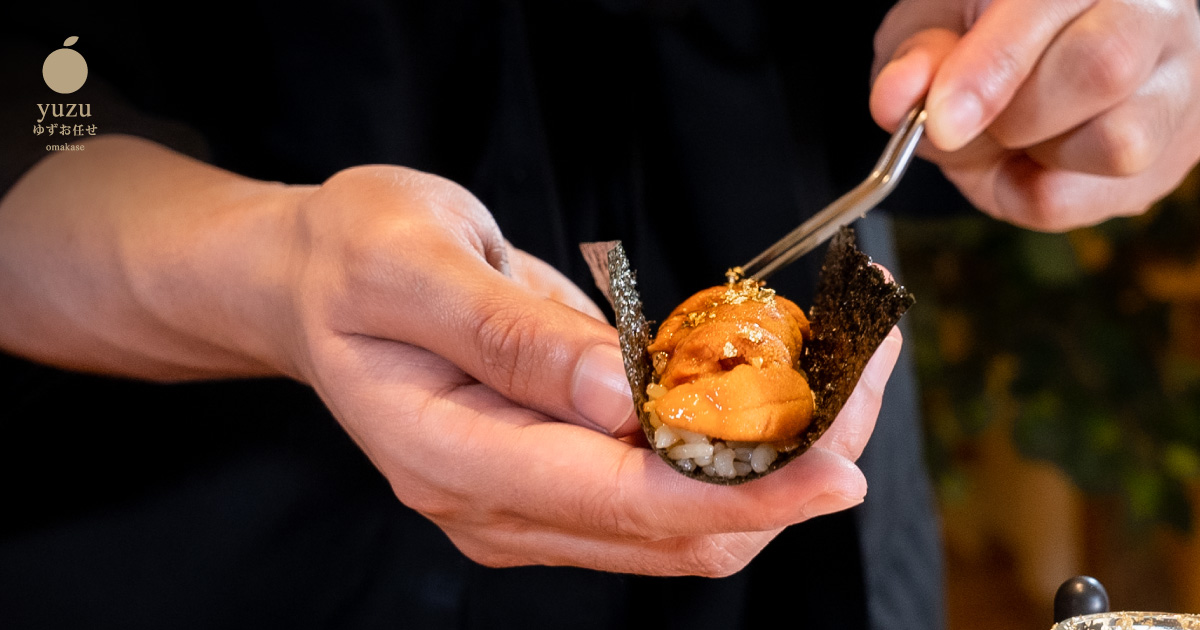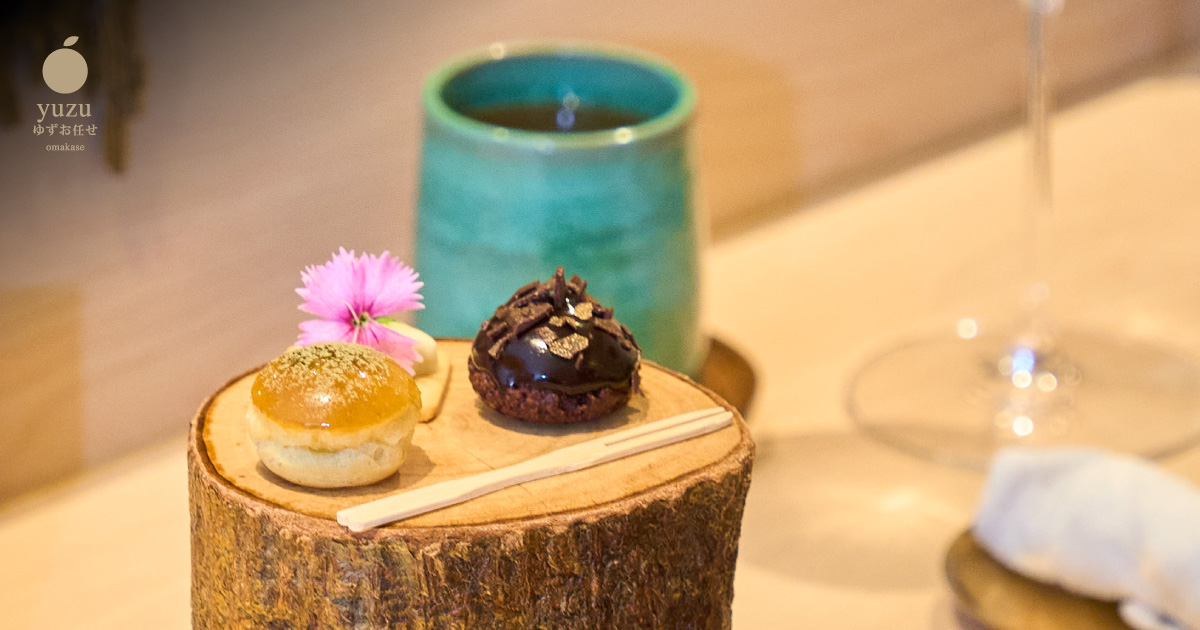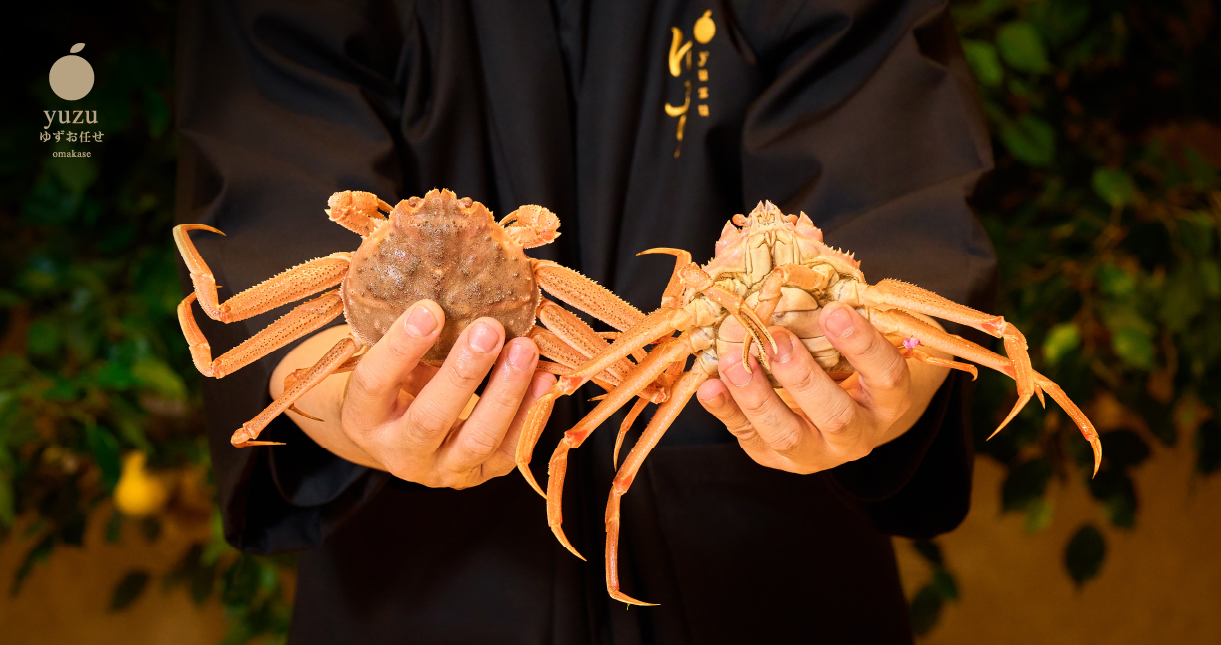
Seafood Sustainability: What You Need to Know
Introduction: The Importance of Sustainable Seafood In a world where natural resources are becoming increasingly strained, the need for sustainable practices is more urgent than ever—especially when it comes to our oceans. The global demand for seafood has led to overfishing, habitat destruction, and the depletion of marine populations. For seafood lovers, this can be a difficult issue to navigate. How can we continue to enjoy high-quality seafood without contributing to the problem?
Well-Being ● 2024 Sep 27
Seafood Sustainability: What You Need to Know
At Yuzu Omakase, we are deeply committed to serving the finest seafood while ensuring that our practices support the long-term health of marine ecosystems. As a restaurant rooted in the traditions of Japanese food culture, we respect the delicate balance between nature and cuisine. By sourcing seafood responsibly and working with suppliers who prioritize sustainability, we are able to offer an omakase experience that is not only luxurious but also ethically responsible. This approach helps protect ocean habitats and ensures that future generations can continue to enjoy the bounty of the sea.
In this article, we will explore the key aspects of seafood sustainability, why it matters, and how Yuzu Omakase supports sustainable fishing practices to deliver a high-quality, eco-conscious dining experience.
What Is Seafood Sustainability?
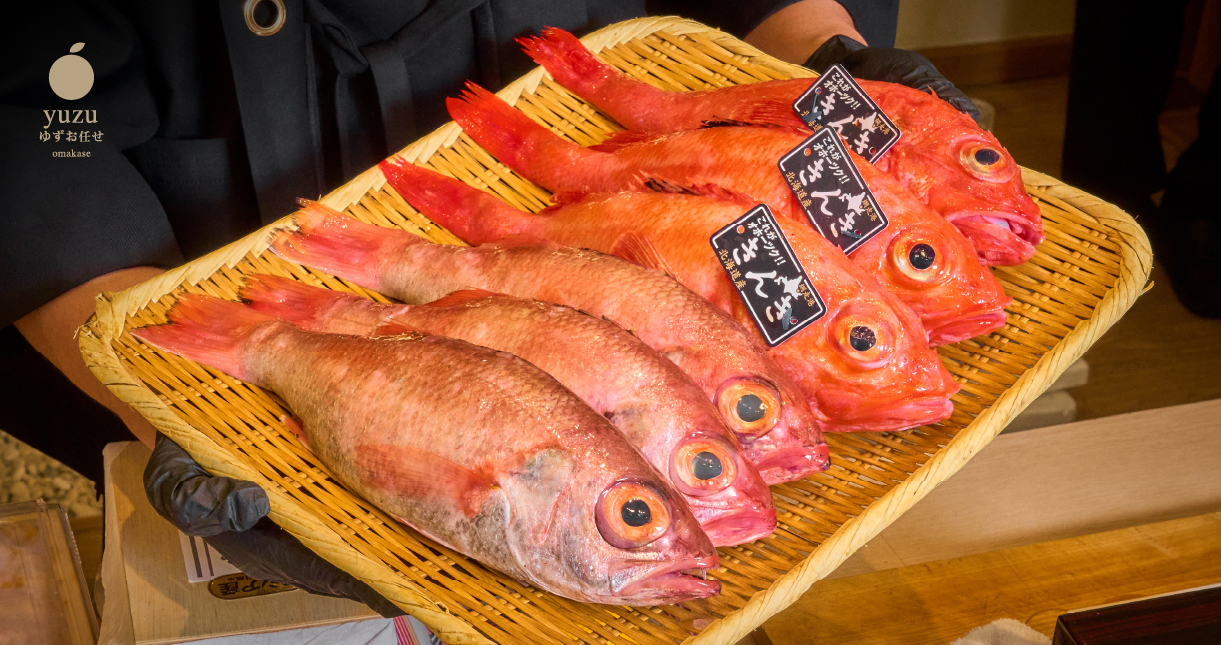
Seafood sustainability refers to fishing and aquaculture practices that ensure seafood populations remain healthy and productive over the long term. It involves harvesting fish and other marine species at a rate that allows them to reproduce and thrive while minimizing harm to the surrounding environment. Sustainable fishing practices also work to avoid bycatch—the capture of unintended species such as dolphins, turtles, or non-target fish—and reduce the impact on fragile marine habitats.
Key principles of sustainable seafood include
Avoiding Overfishing
Ensuring that fish populations are not harvested faster than they can reproduce.
Reducing Bycatch
Implementing fishing methods that limit the capture of unintended species.
Protecting Marine Habitats
Using fishing methods that minimize damage to the ocean floor and ecosystems.
Supporting Local Fisheries
Encouraging sustainable practices in local communities to ensure long-term benefits.
Sustainable seafood is certified by organizations such as the Marine Stewardship Council (MSC) and Aquaculture Stewardship Council (ASC), which set strict standards for sustainability in both wild fisheries and farmed seafood. When you choose seafood from these certified sources, you’re supporting a future where healthy oceans and thriving fish populations are a priority.
Why Sustainable Seafood Matters
The consumption of seafood has grown rapidly over the past few decades, with billions of people relying on fish as their primary source of protein. However, the growing demand has led to overfishing, which threatens not only marine ecosystems but also the livelihoods of coastal communities around the world.
1. Overfishing and Depleted Populations
Overfishing occurs when fish are caught faster than they can reproduce, which can lead to the collapse of entire species. According to the Food and Agriculture Organization (FAO), over 30% of the world’s fish stocks are overfished, with many species on the brink of extinction. Popular seafood such as bluefin tuna, certain species of shark, and Atlantic cod are at risk due to unsustainable fishing practices.
2. Destruction of Marine Habitats
Some fishing methods, such as bottom trawling, can devastate sensitive marine environments. Trawling involves dragging large nets along the ocean floor, destroying coral reefs, seagrass beds, and other vital habitats in the process. These habitats are essential for maintaining biodiversity and providing breeding grounds for many species.
3. Bycatch
Bycatch is the unintentional capture of non-target species during fishing operations. It is a major issue in many fisheries, where endangered species like sea turtles, dolphins, and sharks can be caught and killed unintentionally. Sustainable fishing methods aim to reduce bycatch by using more selective gear and techniques that minimize harm to non-target species.
4. Climate Change and Ocean Health
Climate change has a significant impact on marine ecosystems, causing ocean acidification, rising temperatures, and shifting habitats. These changes affect the health of fish populations and the ecosystems they depend on. Sustainable seafood practices aim to mitigate these impacts by ensuring that fishing practices are environmentally responsible and adaptable to changing conditions.
By supporting sustainable seafood practices, we can protect ocean biodiversity, safeguard food security, and ensure the long-term health of marine environments.
How Yuzu Omakase Supports Sustainable Seafood
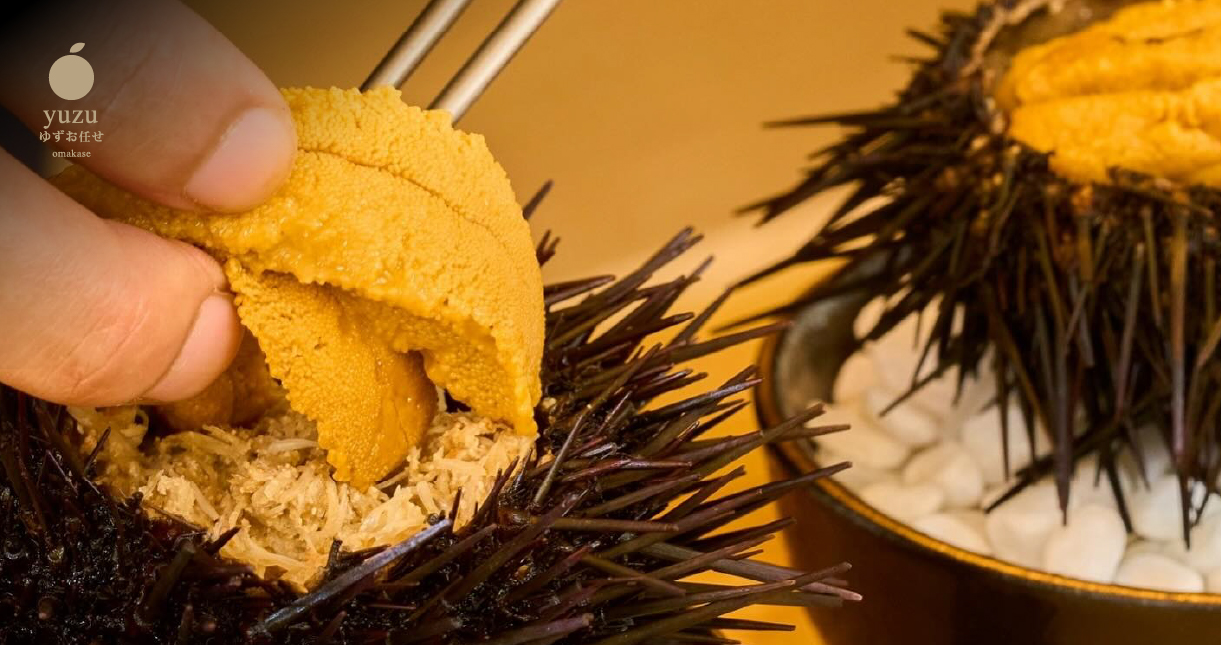
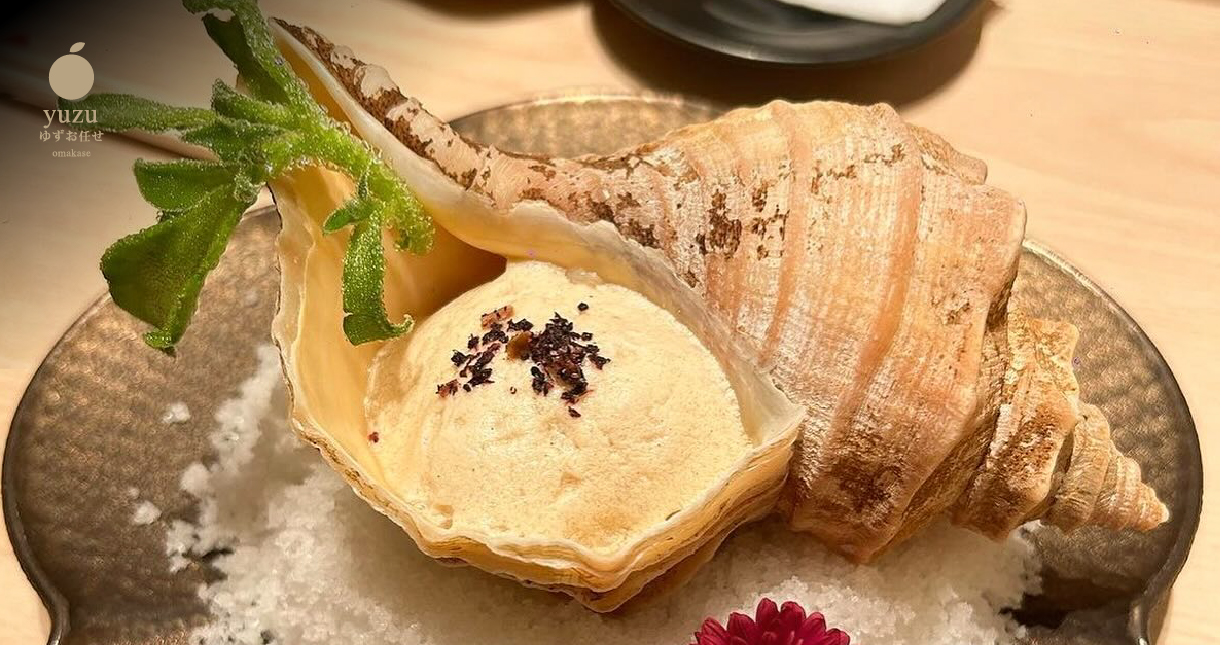
At Yuzu Omakase, we are proud to be part of the movement toward responsible and sustainable seafood sourcing. Our goal is to provide our guests with the finest Bangkok seafood while ensuring that our practices contribute to the health of marine ecosystems. Here’s how we support sustainable fishing practices:
1. Responsible Sourcing of Seafood
Yuzu Omakase works closely with suppliers who prioritize sustainability. We source our seafood from fisheries and farms that adhere to strict sustainability standards, such as those set by the MSC and ASC. These certifications guarantee that the seafood we serve is harvested or farmed in ways that protect fish populations and the surrounding environment.
When you dine with us, you can be confident that the fresh uni, tuna, and other seafood on your plate comes from sources that are committed to preserving the ocean’s natural resources. Whether it's wild-caught fish or sustainably farmed seafood, we ensure that every ingredient meets the highest standards for sustainability and quality.
2. Using Seasonal and Local Ingredients
We believe that supporting local fisheries and using seasonal ingredients is a key component of sustainability. By selecting seasonal seafood that is abundant and in its prime, we help reduce the pressure on overfished species. Our chef takes great care in crafting our omakase menu to reflect what is in season, ensuring that our dishes are not only delicious but also eco-conscious.
In addition to sourcing seafood from sustainable fisheries, we also focus on using local ingredients wherever possible. Supporting local fishermen and aquaculture farms helps to reduce the carbon footprint of our ingredients while contributing to the local economy.
3. Minimizing Waste and Bycatch
Waste is a major issue in the seafood industry, with bycatch and discarded fish contributing to the depletion of marine populations. At Yuzu Omakase, we are committed to minimizing waste by using every part of the fish and seafood we source. Our chef skillfully incorporates a wide variety of cuts into our dishes, ensuring that nothing goes to waste.
By working with suppliers who use selective fishing methods, we also help to reduce bycatch. Our seafood is sourced from fisheries that prioritize minimizing harm to non-target species and protecting marine habitats. This ensures that the seafood on your plate has been harvested responsibly, with minimal impact on the ocean’s delicate ecosystems.
4. Educating Our Guests on Sustainability
At Yuzu Omakase, we believe in educating our guests about the importance of sustainable seafood. Our chef and staff are always happy to share information about where our seafood comes from and how it was sourced. By raising awareness about sustainable fishing practices, we hope to inspire our guests to make more informed choices about the seafood they consume, both at our restaurant and beyond.
Our commitment to sustainability extends beyond the food we serve. We strive to create a dining experience that reflects our respect for nature and our desire to protect the environment for future generations.
The Role of Omakase in Supporting Sustainability
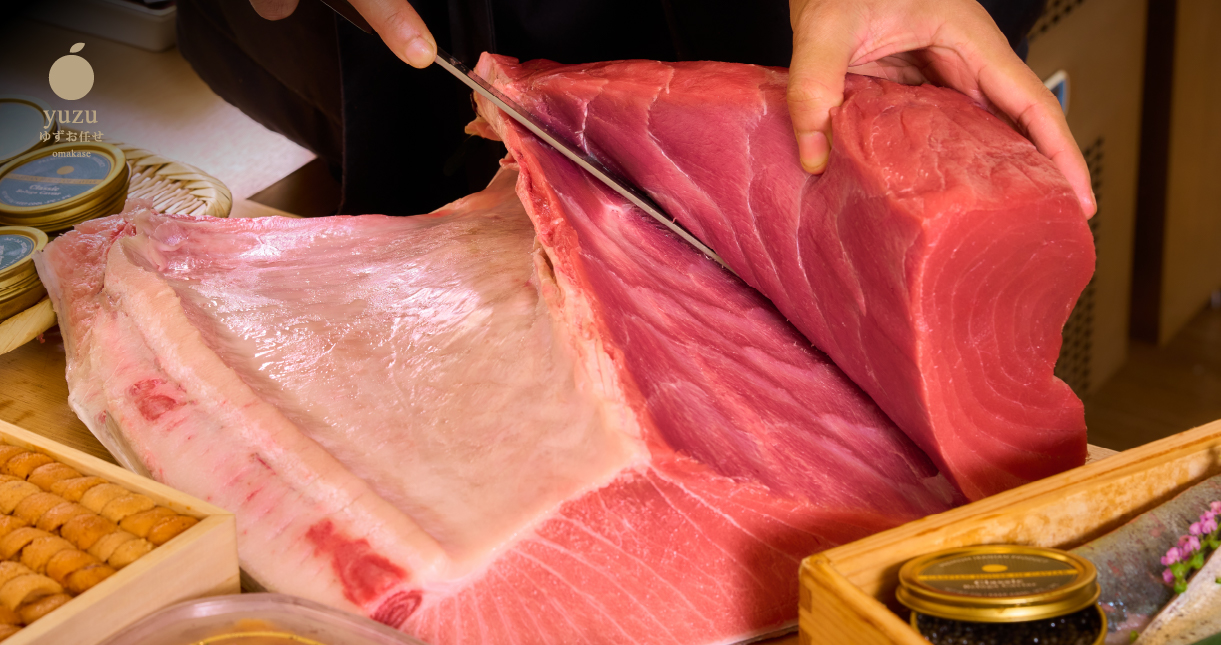
Omakase dining is uniquely suited to support sustainable seafood practices. Since the menu is curated by the chef based on the freshest ingredients available, it allows for flexibility in choosing seafood that is both seasonal and sustainably sourced. At Yuzu Omakase, our chef takes great care in selecting the best seafood from responsible sources, ensuring that our dishes not only taste exquisite but also align with our sustainability goals.
Omakase also encourages the use of the whole fish, reducing waste and promoting a "nose-to-tail" approach to seafood. By utilizing every part of the fish—from the fillets to the bones and skin—our chef can create a variety of dishes that maximize flavor while minimizing waste.
Making a Difference: How You Can Help
As a diner, you have the power to make a positive impact on the environment by choosing to eat at restaurants that prioritize sustainable seafood, like Yuzu Omakase. Here are a few ways you can help support sustainable seafood practices:
Ask Questions
When dining out, don’t be afraid to ask where the seafood comes from and whether it is sustainably sourced. Restaurants like Yuzu Omakase are always happy to share this information with their guests.
Choose Certified Seafood
Look for seafood that is certified by organizations like the MSC or ASC, which guarantee that the fish is sourced responsibly.
Support Seasonal and Local Ingredients
Opt for seafood that is in season and sourced locally to reduce the environmental impact of your meal.
Reduce Waste
Be mindful of portion sizes and avoid wasting food when dining out.
By making informed choices, you can help support sustainable seafood practices and contribute to the protection of our oceans.
Conclusion: A Sustainable Future for Seafood
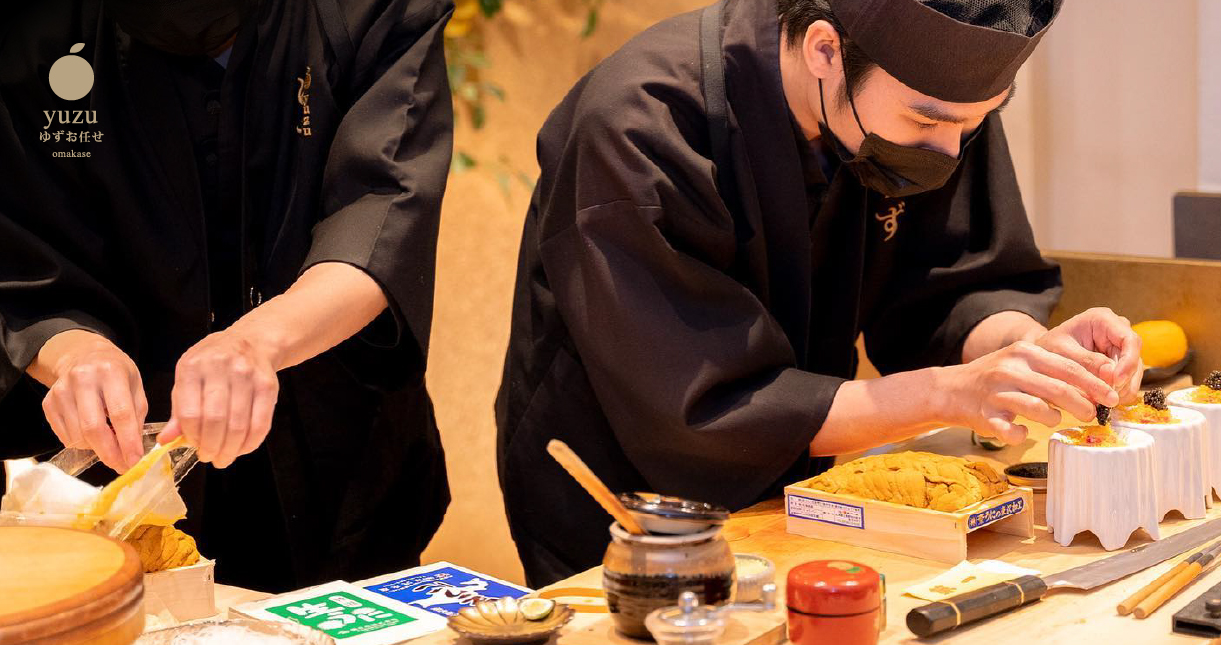
At Yuzu Omakase, we are proud to play a part in the global movement toward sustainable seafood. Through responsible sourcing, waste reduction, and guest education, we strive to provide an omakase experience that not only delights the palate but also supports the long-term health of our oceans.
We invite you to join us on this journey by dining at Yuzu Omakase, where every dish reflects our commitment to sustainability. Whether you’re savoring the delicate flavors of fresh uni or indulging in the richness of sushi fine dining, you can feel good knowing that your meal was sourced with care for the environment.
Book your seat online today and experience the best of sustainable seafood at Yuzu Omakase, located at **258/9-10 Siam Square Soi 3, 2F Path

RELATE



